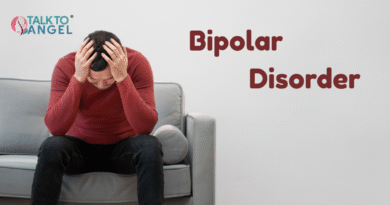Breaking Self-Stigma in Bipolar Disorder
Bipolar disorder is a complex mental health condition marked by extreme mood fluctuations — emotional highs (mania or hypomania) and deep lows (bipolar depression). Affecting millions worldwide, it remains one of the most misunderstood mental illnesses, often surrounded by stigma. Among these, self-stigma—when individuals internalize negative societal beliefs and prejudices—can be particularly damaging. It undermines self-esteem, worsens mental health outcomes, and discourages people from seeking the help they need. Overcoming self-stigma is not only possible but crucial for recovery, resilience, and self-empowerment. By fostering understanding, compassion, and open dialogue, individuals with bipolar disorder can reclaim their sense of worth and lead fulfilling lives.
Understanding Self-Stigma in Bipolar Disorder
Self-stigma in bipolar disorder refers to the negative beliefs and feelings individuals may have about themselves due to their condition. People with bipolar disorder may feel shame, guilt, and worthlessness, which can create barriers to seeking professional help. Internalized stigma often stems from societal attitudes that view mental health conditions as a personal failing rather than a medical condition that requires treatment. This feeling of inadequacy can lead to isolation, avoidance of treatment, and reluctance to engage with family or friends, further deepening the emotional toll of the disorder.
The Importance of Breaking Self-Stigma
It is essential to break the cycle of self-stigma for several reasons:
- Promotes Early Intervention: People who experience less self-stigma are more likely to seek early treatment, which is crucial in managing bipolar disorder effectively. Timely diagnosis and treatment can significantly reduce the severity and frequency of manic and depressive episodes.
- Improves Self-Esteem: Releasing feelings of guilt or shame empowers individuals to rebuild their self-worth and take ownership of their health. An important component of the healing process is developing self-compassion.
- Fosters Supportive Relationships: When individuals with bipolar disorder overcome self-stigma, they are more likely to engage in open communication with loved ones, building supportive networks that enhance recovery.
- Enhances Treatment Outcomes: Self-acceptance is a key element in committing to long-term treatment plans. Patients who break free from self-stigma are more likely to adhere to therapy and medication regimens, leading to improved outcomes.
Key Strategies for Breaking Self-Stigma
Several therapeutic and psychological strategies can help individuals with bipolar disorder break self-stigma and embrace self-acceptance and boost self-esteem.
1. Education and Awareness
One of the most powerful tools in combating self-stigma is education. By learning about bipolar disorder, individuals can understand that it is a medical condition, not a personal failing. The more knowledge a person gains about their disorder, the less likely they are to internalize negative stereotypes. This includes understanding the symptoms and available treatments for bipolar disorder, which can create a sense of control and empowerment.
Psychologists like Dr. R. K. Suri emphasize the importance of psychoeducation as part of therapy, ensuring that patients not only receive treatment but also gain a deeper understanding of their condition. Dr. Suri highlights that “when individuals are well-informed about their diagnosis, they feel more confident in managing their condition, which helps in reducing feelings of self-blame.”
2. Therapeutic Support
Therapy plays a pivotal role in addressing the emotional impacts of bipolar disorder, including self-stigma. Cognitive Behavioral Therapy (CBT) is particularly effective in helping individuals identify and challenge the negative beliefs they hold about themselves. CBT enables patients to reframe distorted thinking patterns and replace them with healthier, more constructive beliefs.
Counseling Psychologists, such as Mr. Utkarsh Yadav, work with patients to address issues of self-stigma by helping them recognize unhelpful thought patterns. “Cognitive restructuring helps individuals with bipolar disorder reframe negative beliefs into more realistic, compassionate thoughts, allowing them to reduce feelings of guilt and shame,” says Mr. Yadav.
3. Building Self-Compassion
Self-compassion is an essential tool for combating self-stigma. Practicing self-compassion involves treating oneself with the same kindness and understanding that one would offer a loved one facing a similar struggle. Studies have shown that self-compassion can lead to better emotional regulation, less psychological distress, and greater resilience.
4. Group Support
Support groups for people with bipolar disorder provide a space for individuals to connect with others who share similar experiences. These groups can foster feelings of belonging and reduce the isolation that often accompanies self-stigma. Peer support gives people hope and a sense of normalcy by letting them hear about other people’s recovery.
5. Mindfulness and Acceptance-Based Approaches
Mindfulness techniques, including meditation and deep breathing exercises, help individuals focus on the present moment, reducing anxiety and self-judgment. Acceptance and Commitment Therapy (ACT) is another approach that encourages individuals to accept their thoughts and feelings without judgment, fostering a more compassionate self-relationship.
6. Professional Support Networks
Involving family members, friends, and mental health professionals is vital in combating self-stigma. Loved ones who understand the challenges of bipolar disorder can provide emotional support and reinforce positive messages of acceptance.
Building a Culture of Acceptance
Ultimately, breaking self-stigma requires not only individual efforts but also a collective shift in societal attitudes toward mental health. Professionals like Ms. Srishti and Ms. Tanu Sangwan are working tirelessly to raise awareness and foster greater acceptance of mental health conditions. Through public education, advocacy, and stigma-reduction campaigns, they strive to create an environment where people with bipolar disorder are treated with dignity and respect.
Support from TalktoAngel and Psychowellness Center
Both TalktoAngel and Psychowellness Center offer important support for individuals with bipolar disorder through in-person and online counseling. Psychowellness Center provides specialized therapy, focusing on holistic care and individualized treatment plans to help manage bipolar symptoms. Their expert psychologists offer both individual and family therapy to foster emotional stability. TalktoAngel, with its accessible online platform, connects clients to experienced counselors who use evidence-based therapies such as CBT and mindfulness, making mental health support available anytime, anywhere, and they also offer free self-assessment. Their commitment to reducing stigma and providing compassionate care makes them a vital resource for those seeking help.
Conclusion
Breaking self-stigma in bipolar disorder is a critical step toward healing and recovery. Through education, therapy, and support, individuals can learn to accept themselves and manage their condition effectively. With the help of mental health professionals, like those at TalktoAngel and Psychowellness Center, individuals with bipolar disorder can embrace a path of self-compassion, improved mental health, and long-term well-being.
References:
- Singh, R. K. (2021). “Psychoeducation and Its Impact on Mental Health.” Journal of Mental Health Treatment.
- Yadav, U. (2022). “Cognitive Behavioral Therapy: Transforming Negative Thought Patterns in Bipolar Disorder.” Journal of Psychology and Therapy.
- Dhankhar, S. (2023). “Self-Compassion and Its Role in Mental Health Recovery.” International Journal of Counseling.
- Pal, S. (2024). “Family Support in Managing Bipolar Disorder.” The Family Therapy Journal.
- Sangwan, T., & Shrishti, M. (2024). “Mindfulness-Based Approaches to Overcoming Self-Stigma.” Mindfulness and Mental Health.




